Histolin DX Syrup 60 ml
MRP ₹108
(Inclusive of all Taxes)
₹16.2 Cashback (15%)
Provide Delivery Location
Online payment accepted
 Prescription drug
Prescription drugWhats That
Manufacturer/Marketer :
Consume Type :
Expires on or after :
Return Policy :
About Histolin DX Syrup
Histolin DX Syrup belongs to a class of medication called 'cough and cold preparations' primarily used to treat cough due to runny nose, sneezing, and throat irritation. Coughing (dry or productive) is the body's way of clearing irritants (like allergens, mucus or smoke) from airways and preventing infection. There are two types of coughs, namely: Dry cough and chesty cough. A dry cough is tickly and doesn't produce any vicious or thick mucus, while a chesty cough (wet cough) produces mucous or sputum.
Histolin DX Syrup is a combination of two drugs, namely: Chlorphenamine maleate and Dextromethorphan hydrobromide. Chlorphenamine maleate works by blocking the action of histamine, a substance responsible for causing allergic reactions. Dextromethorphan hydrobromide blocks the transmission of nerve signals from the cough centre in the brain to the muscles that produce cough. Together, Histolin DX Syrup helps to relieve cough, cold and allergic symptoms.
Your doctor will recommend the dose and duration of Histolin DX Syrup based on your medical condition. Some people may experience dry mouth/throat/nose, drowsiness, blurred vision, constipation, dizziness, and restlessness. Most of these side effects of Histolin DX Syrup do not require medical attention and gradually resolve over time. However, if the side effects persist or worsen, please consult your doctor.
If you are pregnant or breastfeeding, it is advised to inform your doctor before starting Histolin DX Syrup. Histolin DX Syrup is not recommended for children below 2 years of age. Histolin DX Syrup may cause dizziness, so drive only if you are alert. Avoid alcohol consumption along with Histolin DX Syrup as it may cause increased dizziness and drowsiness. Keep your doctor informed about your health condition and medications to rule out any side effects/interactions.
Uses of Histolin DX Syrup
Directions for Use
Key Benefits
Histolin DX Syrup is a combination of two drugs: Chlorphenamine maleate (antihistamine) and Dextromethorphan hydrobromide (cough suppressant). Chlorphenamine maleate belongs to the class of antihistamines or anti-allergic that works by blocking the action of histamine, a substance responsible for causing allergic reactions. It helps to provide relief from allergy symptoms such as sneezing, running nose, watery eyes, itching, swelling, and congestion or stiffness. Dextromethorphan hydrobromide belongs to the class of cough suppressants that block the transmission of nerve signals from the cough centre in the brain to the muscles that produce cough. Thus, together Histolin DX Syrup helps to relieve cough, cold and allergic symptoms.
Storage
- Inform your doctor about the nausea and discuss possible alternatives to the medication or adjustments to the dosage.
- Divide your daily food intake into smaller, more frequent meals to reduce nausea.
- Opt for bland, easily digestible foods like crackers, toast, plain rice, bananas, and applesauce.
- Avoid certain foods that can trigger nausea, such as fatty, greasy, spicy, and smelly foods.
- Drink plenty of fluids, such as water, clear broth, or electrolyte-rich beverages like coconut water or sports drinks.
- Use ginger (tea, ale, or candies) to help relieve nausea.
- Get adequate rest and also avoid strenuous activities that can worsen nausea.
- Talk to your doctor about taking anti-nausea medication if your nausea is severe.
- Record when your nausea occurs, what triggers it, and what provides relief to help you identify patterns and manage your symptoms more effectively.
- Preventing Vomiting (Before it Happens)
- Take medication exactly as prescribed by your doctor. This can help minimize side effects, including vomiting.
- Having a small meal before taking your medication can help reduce nausea and vomiting.
- Talk to your doctor about taking anti-nausea medication along with your prescribed medication.
- Managing Vomiting (If it Happens)
- Try taking ginger in the form of tea, ale, or candy to help alleviate nausea and vomiting.
- What to Do if Vomiting Persists
- Consult your doctor if vomiting continues or worsens, consult the doctor for guidance on adjusting your medication or additional treatment.
- Inform your doctor about your constipation symptoms. They may adjust your medication or advise alternative treatments.
- Stay hydrated by drinking sufficient of water (at least 8-10 glasses a day) to help soften stool and promote bowel movements.
- Increase fibre intake by eating foods high in fibre, such as fruits, whole grains, vegetables and legumes, to help bulk up the stool.
- Establish a bowel routine by trying to go to the bathroom at the same time each day to train your bowels.
- Engaging in regular exercise, like walking or yoga, can support in bowel movement stimulation.
- Consult your doctor if constipation persists, and discuss alternative treatments or adjustments to your medication.
- Get enough sleep. Maintain a regular sleep cycle.
- Eat a healthy diet and exercise regularly.
- Manage stress with yoga or meditation.
- Limit alcohol and caffeine.
- Avoid driving or operating machinery unless you are alert.
- Inform your doctor about dizziness symptoms. They may adjust your medication regimen or prescribe additional medications to manage symptoms.
- Follow your doctor's instructions for taking medication, and take it at the same time every day to minimize dizziness.
- When standing up, do so slowly and carefully to avoid sudden dizziness.
- Avoid making sudden movements, such as turning or bending quickly, which can exacerbate dizziness.
- Drink plenty of water throughout the day to stay hydrated and help alleviate dizziness symptoms.
- If you're feeling dizzy, sit or lie down and rest until the dizziness passes.
- Track when dizziness occurs and any factors that may trigger it, and share this information with your doctor to help manage symptoms.
- Avoid driving or operating machinery or activities that require high focus until you know how the medication affects you.
- Maintain a fixed sleeping schedule, create a relaxing bedtime routine and ensure your sleeping space is comfortable to maximize your sleep quality.
- Limit alcohol and caffeine as these may worsen drowsiness and disturb sleep patterns.
- Drink plenty of water as it helps with alertness and keeps you hydrated and for overall well-being.
- Moderate physical activity can improve energy levels, but avoid intense workouts right before bedtime.
- Confusion is a major psychotic disorder that needs immediate medical attention.
- Acknowledge your experience and put effort to control confusion.
- Avoid smoking and alcohol intake as it can worsen the condition and increase your confusion.
- Practice meditation and yoga to avoid anxiety, which can be one of the leading causes.
- Talk to your dietician and consume food that can improve your mental health.
Drug Warnings
Do not take Histolin DX Syrup if you are allergic to any of the contents. Avoid using Histolin DX Syrup if you have taken medicines such as linezolid, phenelzine, selegiline, rasagiline, isocarboxazid, tranylcypromine, and methylene blue injection in the past 14 days. It is advised to seek medical help if the cough does not go away or if it is followed by a high fever, skin rash, or persistent headache. Histolin DX Syrup may cause drowsiness, dizziness, and blurred vision in some patients; therefore, drive only if you are alert. Histolin DX Syrup should not be used in elderly patients with confusion. Avoid alcohol consumption along with Histolin DX Syrup as it might cause increased dizziness.
Drug-Drug Interactions
Drug-Drug Interactions
Login/Sign Up
Co-administration of Histolin DX Syrup 60 ml and Selegiline may increase the risk of serotonin syndrome (a condition in which a chemical called serotonin builds up in your body).
How to manage the interaction:
Co-administration of Selegiline with Histolin DX Syrup 60 ml can possibly result in an interaction, but it can be taken if a doctor has advised it. If you notice any of these symptoms - confusion, hallucination, fits, increased heart rate, fever, excessive sweating, shivering, shaking, blurred vision, muscle spasm, stiffness, incoordination, stomach cramps, nausea, vomiting, or diarrhea - make sure to contact a doctor right away. Do not stop using any medications without talking to a doctor.
Taking Tranylcypromine with Histolin DX Syrup 60 ml can increase the risk of serotonin syndrome (a condition in which a chemical called serotonin increases in your body).
How to manage the interaction:
Taking Histolin DX Syrup 60 ml with Tranylcypromine is not recommended, but can be taken together if prescribed by a doctor. However, consult a doctor if you experience confusion, hallucination(seeing and hearing things that do not exist), fit blood pressure alteration, increased heart rate, fever, excessive sweating, shivering or shaking, blurred vision, pain in the muscles or stiffness, incoordination, stomach cramps, nausea, vomiting, and diarrhea. Do not discontinue any medications without consulting a doctor.
Co-administration of Phenelzine and Histolin DX Syrup 60 ml can increase the risk of serotonin syndrome (A condition in which a chemical called serotonin builds up in your body).
How to manage the interaction:
Co-administration of Phenelzine and Histolin DX Syrup 60 ml can lead to an interaction. However, if you experience any symptoms like confusion, hallucination, seizure, changes in blood pressure, increased heart rate, fever, excessive sweating, shivering or shaking, blurred vision, muscle stiffness, tremors, stomach cramps, nausea, vomiting, and diarrhea, consult a doctor immediately. Do not stop using any medications without a doctor's advice.
Co-administration of Isocarboxazid with Histolin DX Syrup 60 ml can increase the risk of serotonin syndrome (A condition in which a chemical called serotonin builds up in your body).
How to manage the interaction:
Taking Histolin DX Syrup 60 ml and Isocarboxazid can lead to an interaction. However, if you experience any symptoms like confusion, hallucination, seizure, changes in blood pressure, increased heart rate, fever, excessive sweating, shivering or shaking, blurred vision, muscle stiffness, tremors, stomach cramps, nausea, vomiting, and diarrhea, consult a doctor immediately. Do not stop using any medications without a doctor's advice.
Co-administration of Pargyline and Histolin DX Syrup 60 ml can increase the risk of serotonin syndrome (A condition in which a chemical called serotonin builds up in your body).
How to manage the interaction:
Co-administration of Histolin DX Syrup 60 ml and Pargyline can lead to an interaction. However, if you experience any symptoms like confusion, hallucination, seizure, changes in blood pressure, increased heart rate, fever, excessive sweating, shivering or shaking, blurred vision, muscle stiffness, tremors, stomach cramps, nausea, vomiting, and diarrhea, consult a doctor immediately. Do not stop using any medications without a doctor's advice.
Co-administration of Histolin DX Syrup 60 ml and Procarbazine may increase the risk of serotonin syndrome (a condition in which a chemical called serotonin builds up in your body).
How to manage the interaction:
Co-administration of Procarbazine with Histolin DX Syrup 60 ml can possibly result in an interaction, but it can be taken if a doctor has advised it. If you notice any of these symptoms - confusion, hallucination, seizure, increased heart rate, fever, excessive sweating, shivering, shaking, blurred vision, muscle spasm, stiffness, incoordination, stomach cramps, nausea, vomiting, or diarrhea - make sure to contact a doctor right away. Do not stop using any medications without talking to a doctor.
Taking Rasagiline with Histolin DX Syrup 60 ml can increase the risk of serotonin syndrome (A condition in which a chemical called serotonin increase in your body).
How to manage the interaction:
Taking Histolin DX Syrup 60 ml with Rasagiline is not recommended as it can possibly result in an interaction, it can be taken if a doctor has advised it. If you notice any of these symptoms like confusion, hallucination, fits, extreme changes in blood pressure, increased heart rate, fever, excessive sweating, shivering or shaking, blurred vision, muscle spasm or stiffness, shaking, incoordination, stomach cramps, nausea, vomiting, and diarrhea, consult a doctor. Do not discontinue any medications without consulting a doctor.
Taking Histolin DX Syrup 60 ml and Potassium citrate (in tablet or capsule form) together can increase the risk of stomach ulcers, bleeding, and gastrointestinal injury.
How to manage the interaction:
Taking Histolin DX Syrup 60 ml with Potassium citrate is not recommended as it can lead to an interaction, it can be taken if prescribed by the doctor. However, if you experience any symptoms such as severe stomach pain, bloating, lightheadedness or dizziness, nausea, vomiting (especially with blood), decreased hunger, or dark, tarry stools, consult the doctor immediately. Do not discontinue any medications without a doctor's advice.
Taking Histolin DX Syrup 60 ml and Potassium chloride (in tablet or capsule form) together can increase the risk of stomach ulcers, bleeding, and gastrointestinal injury.
How to manage the interaction:
Taking Histolin DX Syrup 60 ml with Potassium chloride it not recommended as it can lead to an interaction, it can be taken if your doctor has prescribed it. However, if you experience any symptoms such as severe stomach pain, bloating, lightheadedness or dizziness, nausea, vomiting (especially with blood), decreased hunger, or dark, tarry stools, consult the doctor. Do not discontinue any medications without a doctor's advice.
Co-administration of Histolin DX Syrup 60 ml and Desvenlafaxine might raise serotonin hormone levels in the body and may affect the brain or nerve cells. Increased serotonin hormone can lead to severe side effects.
How to manage the interaction:
Although there is a possible interaction between Histolin DX Syrup 60 ml and Desvenlafaxine, you can take these medicines together if prescribed by a doctor. However, if you experience symptoms such as seizure (fits), confusion, hallucination, increased heart rate, fever, excessive sweating, shivering or shaking, tremors, incoordination, blurred vision, muscle spasms or stiffness, nausea, vomiting, stomach cramps, and diarrhea, contact a doctor immediately. Do not discontinue the medications without consulting a doctor.
Drug-Food Interactions
Drug-Food Interactions
Login/Sign Up
Diet & Lifestyle Advise
- Avoid dairy products such as milk as they may increase mucus production. Also, avoid processed or refined foods. Instead, replace baked foods, fried foods, white bread, white pasta, french fries, sugary desserts, and chips with green leafy vegetables.
- Drink plenty of fluids to avoid a dry throat. It also helps loosen mucus.
- Avoid citrus fruits as they may worsen the cough.
- Eat fruits rich in water content, such as pears, watermelon, peaches, and pineapples.
Side Effects of Histolin DX Syrup
- Dry mouth, throat or nose
- Drowsiness
- Blurred vision
- Constipation
- Dizziness
- Restlessness
Habit Forming
Therapeutic Class
All Substitutes & Brand Comparisons
RX
Out of StockCofrex-DX Syrup
Samson Laboratories Pvt Ltd
₹55
(₹0.5/ 1ml)
69% CHEAPERRX
Out of StockCufease Syrup 100 ml
Zydus Cadila
₹58
(₹0.52/ 1ml)
67% CHEAPERRX
Out of StockCufease Syrup 50 ml
Adonis Laboratories Pvt Ltd
₹35
(₹0.63/ 1ml)
61% CHEAPER
Author Details
We provide you with authentic, trustworthy and relevant information
Drug-Diseases Interactions
Drug-Diseases Interactions
Login/Sign Up
FAQs
Drug-Drug Interactions Checker List
- DIPHENHYDRAMINE
- ESCITALOPRAM
- DESVENLAFAXINE
- VILAZODONE
Special Advise
- Talk to your doctor if the symptoms do not improve even after taking Histolin DX Syrup for 7 days.
- Contact a doctor immediately if you develop fever, rash, or headache after taking Histolin DX Syrup.
- If you are about to undergo any medical tests or surgery, please inform your doctor that you are taking Histolin DX Syrup.
Disease/Condition Glossary
Cough: Coughing is the body's way of clearing irritants (like allergens, mucus, or smoke) from airways and preventing infection. Cough may be dry or productive. A productive cough (wet cough) brings up sputum (phlegm, mucus, and other matter) from the lungs. A dry cough does not produce any mucus or phlegm. It usually occurs due to irritation in the airways. Cough is commonly caused as a response to allergy or viral infection but coughing up mucus is possibly an indication of infection in the respiratory tract.

Have a query?
Alcohol
Safe if prescribed
Histolin DX Syrup may increase the effects of alcohol, so it is advised to avoid alcohol consumption.
Pregnancy
Consult your doctor
Consult a doctor if you have any concerns regarding this. Your doctor will prescribe only if the benefits outweigh the risks.
Breast Feeding
Consult your doctor
Please consult a doctor if you have any concerns. Your doctor will decide if Histolin DX Syrup can be taken by breastfeeding mothers or not.
Driving
Safe if prescribed
Histolin DX Syrup may cause dizziness and drowsiness. Therefore, drive only if you are alert after taking Histolin DX Syrup.
Liver
Consult your doctor
Take Histolin DX Syrup with caution, especially if you have a history of liver diseases/conditions. The dose may be adjusted by your doctor as required.
Kidney
Consult your doctor
Take Histolin DX Syrup with caution, especially if you have a history of kidney diseases/conditions. The dose may be adjusted by your doctor as required in severe kidney disease.
Children
Safe if prescribed
Histolin DX Syrup is not recommended for children below 2 years of age. However, it can be used by children older than 2 years of age if prescribed by a child specialist.





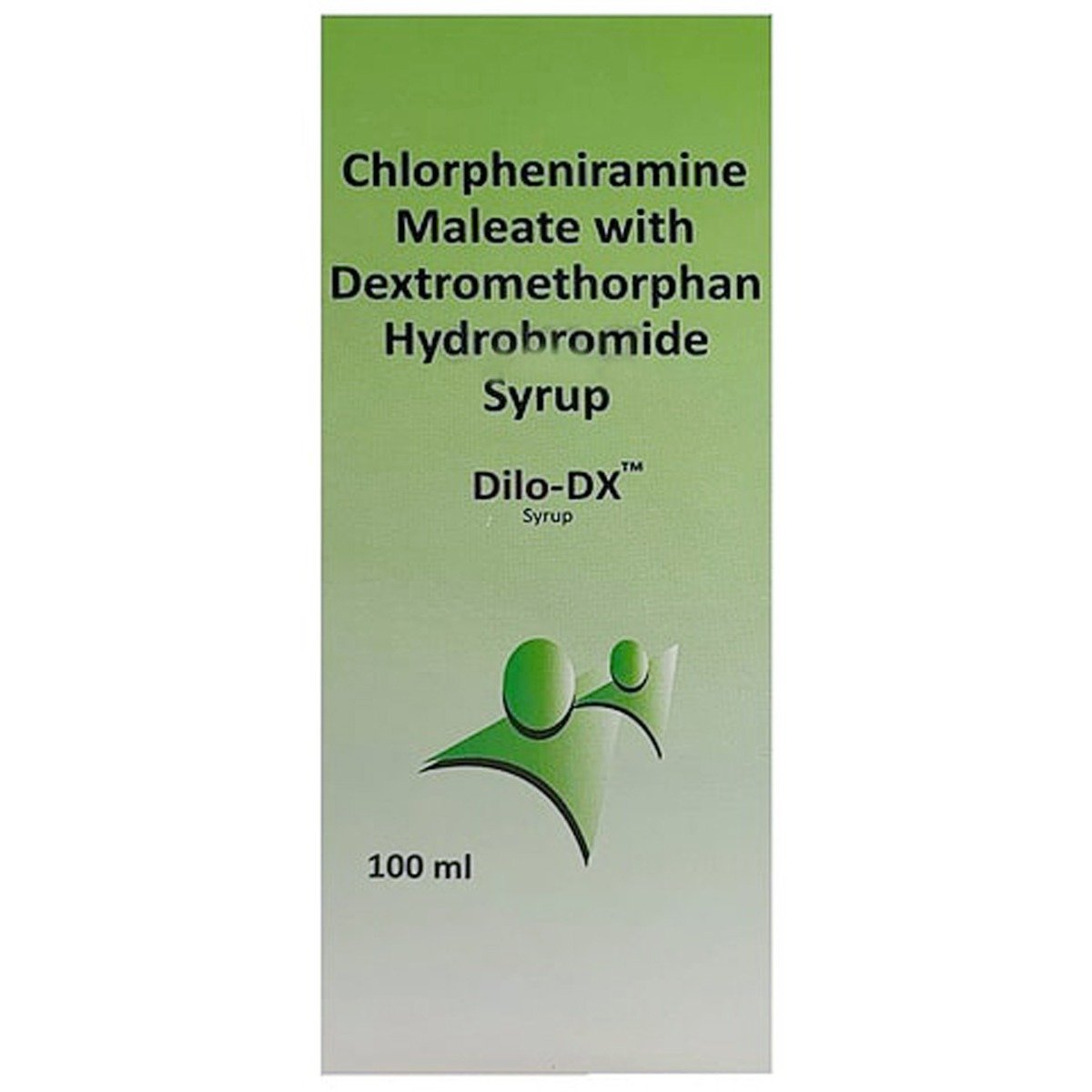
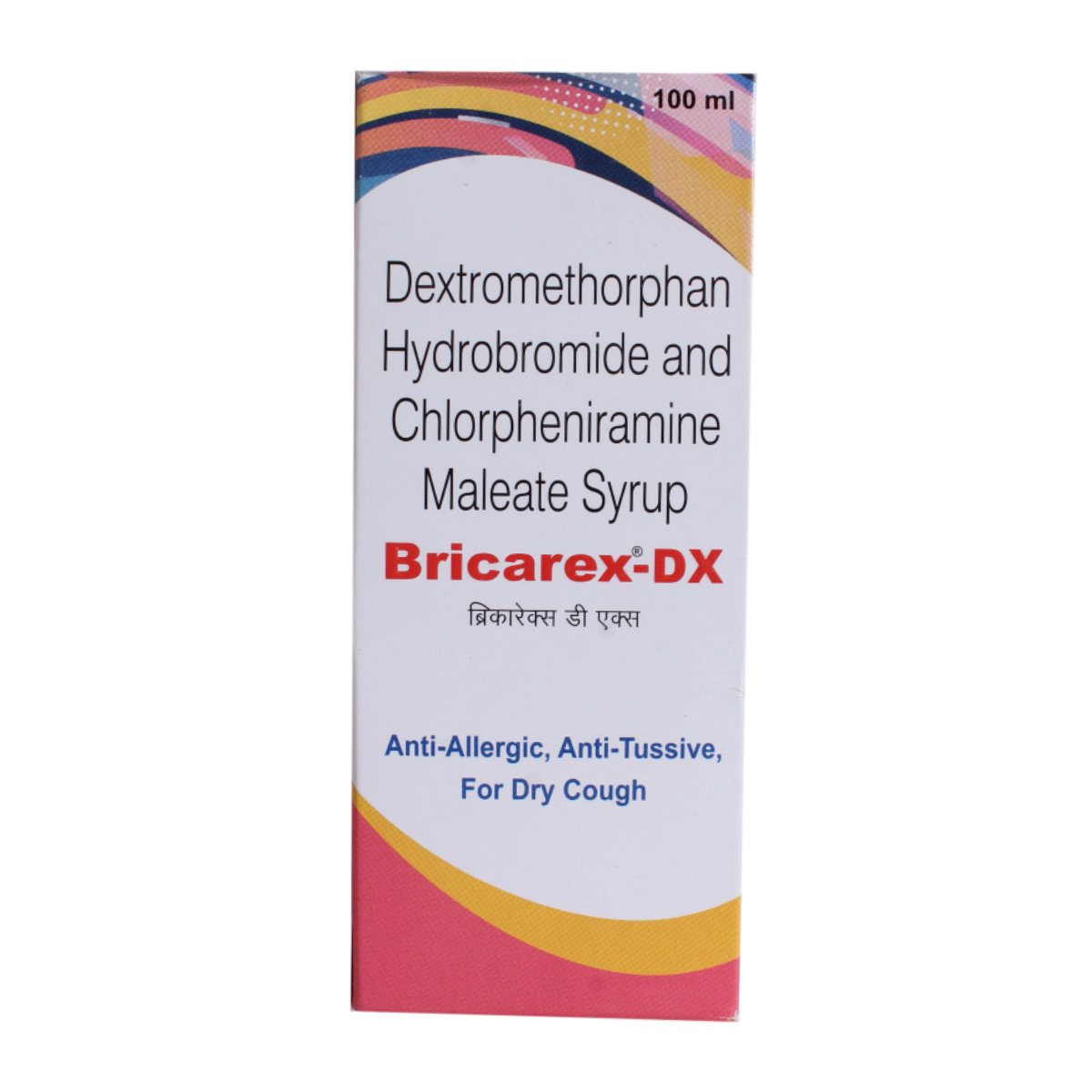
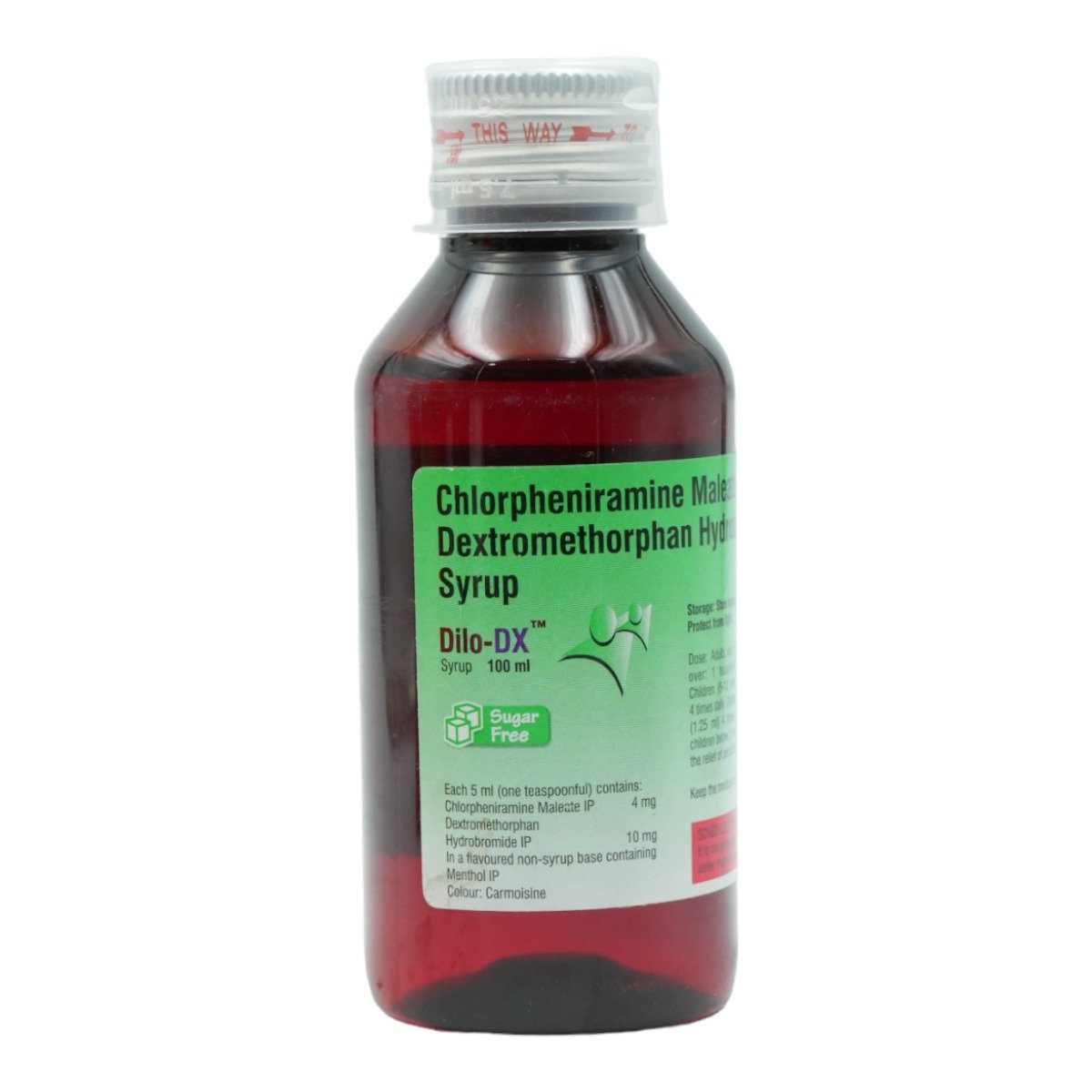
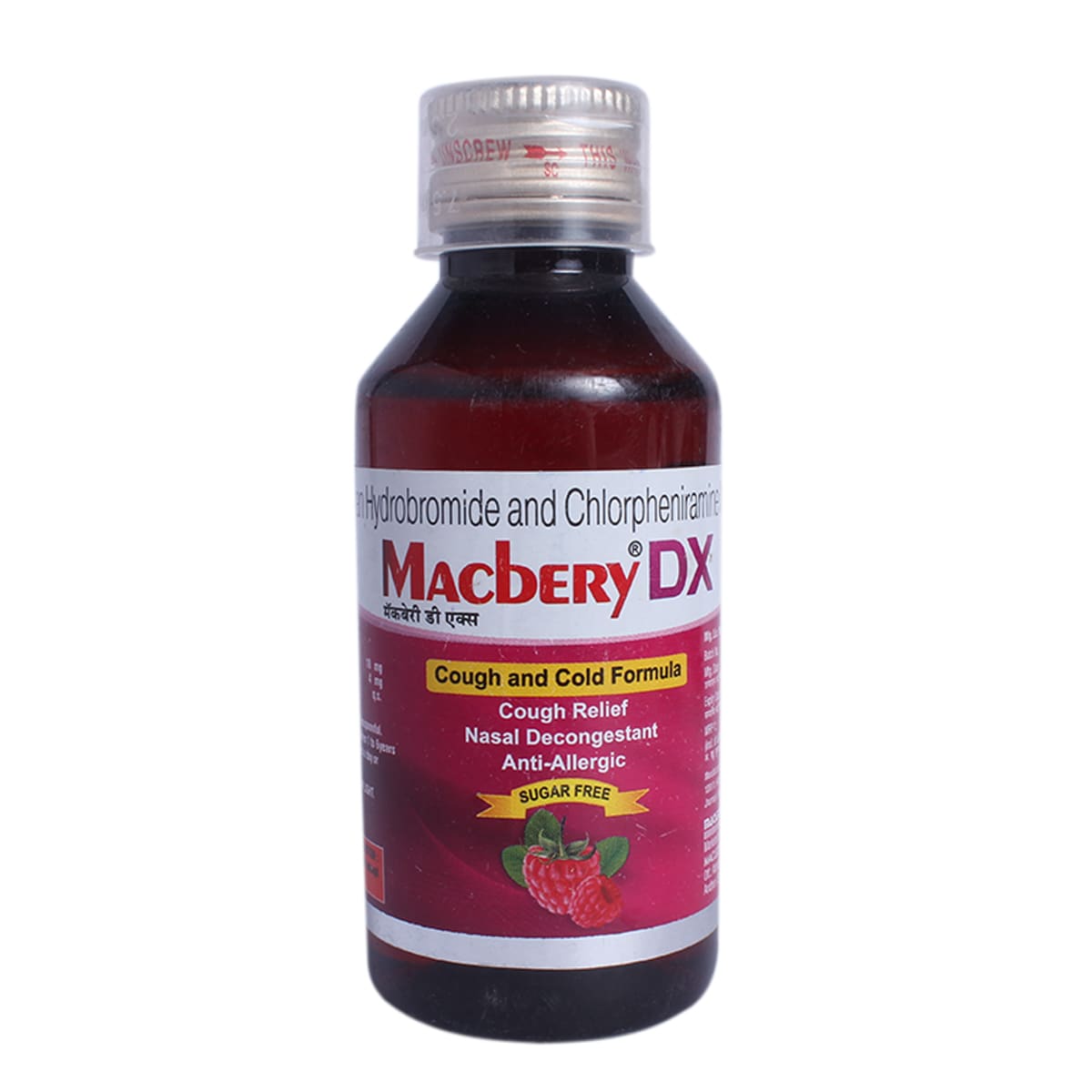

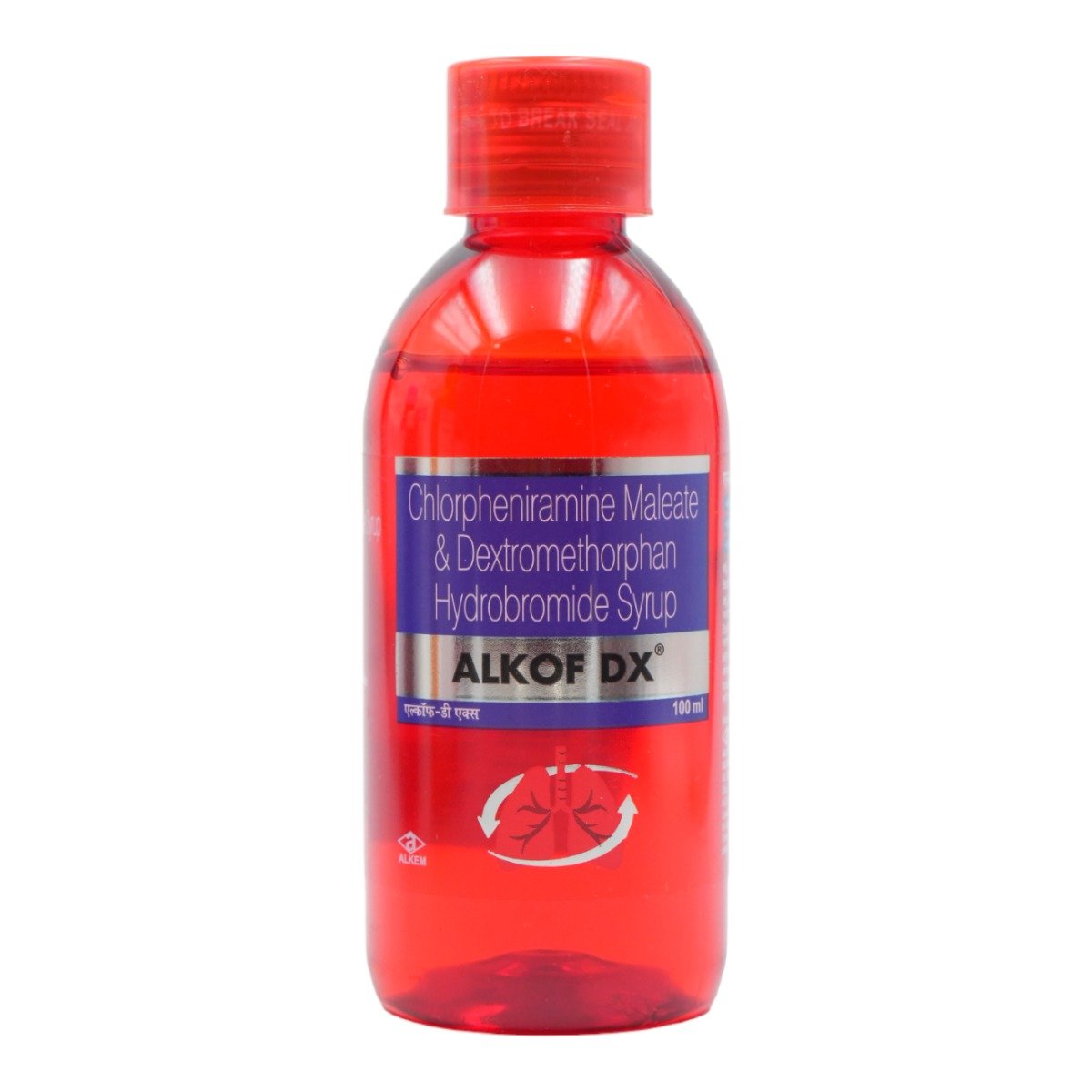
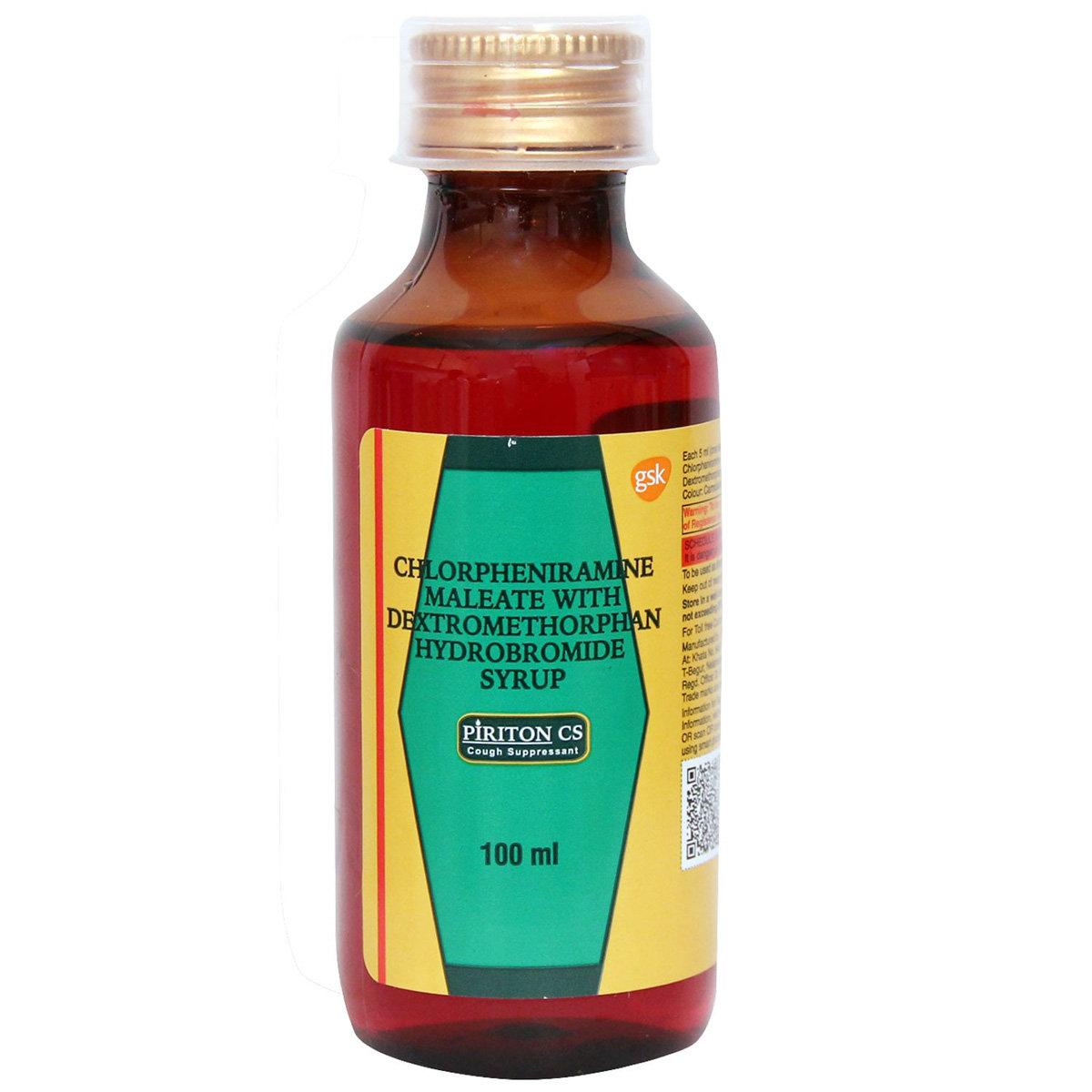
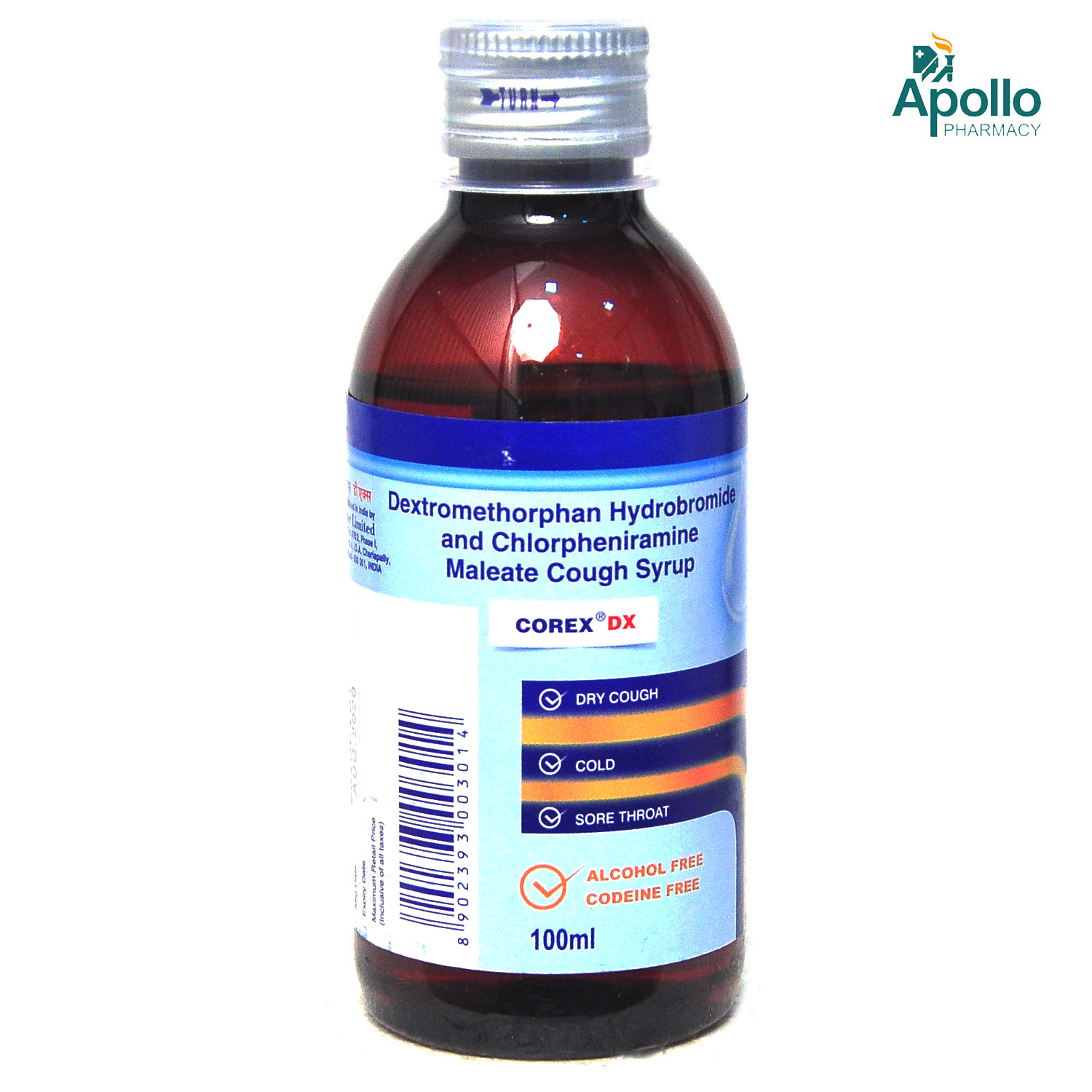

_0.jpg?tr=q-85)

